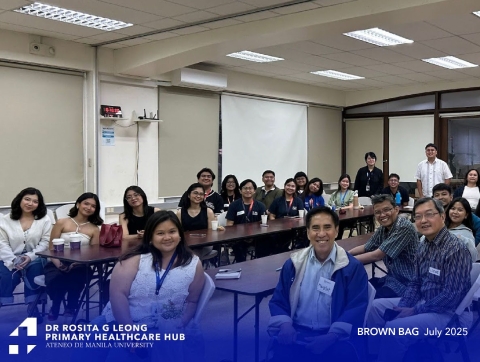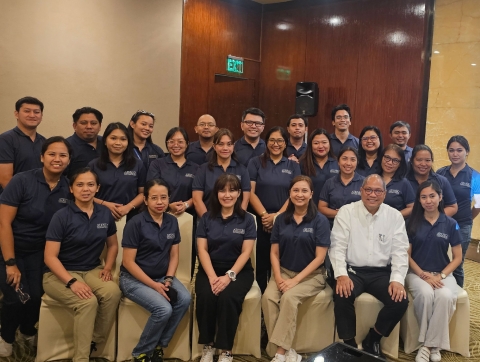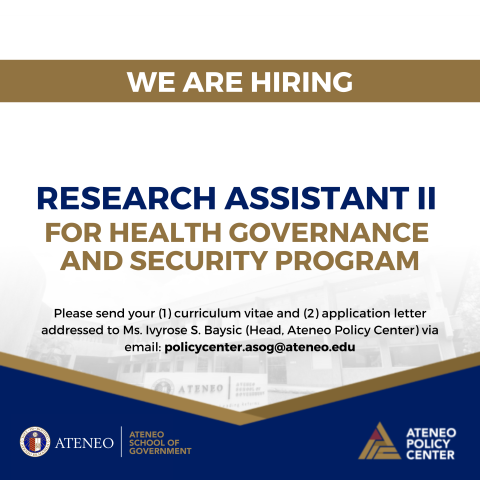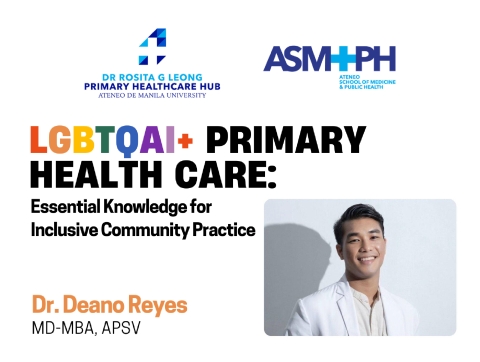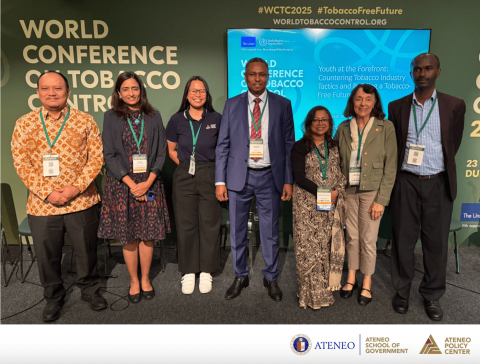Ateneo study highlights workforce hurdles to Universal Health Care in the Philippines
22 May 2025
Despite being a top exporter of healthcare professionals, the Philippines faces a chronic shortage of nurses and physicians. Also, many health graduates in the country are unprepared for real-world public health work. Government primary care facilities and hospitals struggle to hire sufficient staff due to budget and policy barriers, while private hospitals struggle to keep their staff due to fiscal constraints.
These findings, published recently in the international journal Human Resources for Health by Ateneo de Manila University researchers, are major hurdles to the implementation of Universal Health Coverage (UHC) in the country.
The study found that many Filipino doctors and nurses are inadequately prepared for UHC due to hospital-focused education that lacks training in public health and community-based care. Graduates often enter the workforce without sufficient understanding of UHC principles, and there are limited onboarding programs to bridge this gap. At the same time, low salaries, job insecurity, and limited career growth drive many health professionals to seek better opportunities abroad. These combined issues in education and compensation are major obstacles to building a strong and sustainable health workforce essential for UHC implementation.
“The nurses we lost are our best nurses. It is painful that the trained ones are the ones who leave. The ones left with us are either the new ones or are very old, because their salary (overseas) is five times what we pay here,” confided the administrator of a public tertiary facility in an urban area.
And even when healthcare professionals choose to stay in the country, they find themselves beset by restrictive government hiring policies that create bottlenecks in the workforce:
“The Department of Health has many (requirements) that are difficult to provide. Especially for manpower. We need a records officer, Information Technology administrator, but what happens is the nurse is the administrator, she is also in the records. So, the nurse is also the IT that should be designated just to meet the criteria,” lamented a public primary care provider from an urban area.
Tenuous execution of health workforce provisions in the UHC Law
The signing of Republic Act No. 11223 (also known as the Philippine Universal Health Care Act) in February 2019 was a landmark move aimed at ensuring that all Filipinos, regardless of income or geographic location, have access to quality and affordable health services without financial difficulties. The law mandates automatic enrollment of all citizens into the National Health Insurance Program and expands the role of local government units (LGUs) in managing health service delivery. Implementation began shortly before the COVID-19 pandemic, which both highlighted the urgency of health system reform and strained the country's already fragile health infrastructure.
However, despite the law’s passage, the researchers found that its implementation has been greatly hindered by problems with workforce readiness, service delivery capacity, and issues in the coordination between national and local health systems.
According to their research, the Philippines’ physician-to-population ratio stands at 7.92 per 10,000 people, falling short of the international minimum standard of 10 per 10,000. Additionally, the country faces a shortage of at least 127,000 nurses, with most shortages concentrated in the private sector. The problem is exacerbated by the “brain drain” phenomenon, which sees many healthcare workers seeking better pay and working conditions abroad. And since current health and medical education often neglects community health and UHC principles, new graduates are ill-prepared for deployment to underserved areas.
Recommendations for health workforce recruitment, retention
To address these challenges, the researchers recommend (1) greater integration between academic institutions and health facilities to ensure placement for graduates covered by return service agreements and minimizing workforce shortages in health facilities; (2) offering educational incentives for dependents and postgraduate training for health workers with return service agreements; (3) more equitable distribution of specialist training opportunities for physicians; (4) revisiting medical and health education curricula; (5) higher education and civil service reforms; (6) revisiting some provisions of the Local Government Code; (7) local governments to develop long-term plans to recruit and retain health workers; (8) revisiting health workforce training programs and their costs; (9) UHC training for current health workforce and new hires; and (10) more equitable bilateral labor agreements between health workforce source and destination countries.
These recommendations aim to mitigate workforce shortages and help ensure a more equitable healthcare system under the UHC Law. Moreover, the Ateneo study paints a sobering picture of the Philippine health system’s current capacity to deliver on its UHC promise. Urgent and sustained investments in the local health workforce are needed to ensure that universal Philippine healthcare is more than just a legal aspiration.
SOURCE:
https://archium.ateneo.edu/asmph-pubs/314/
For interview requests and other inquiries, please email media.research@ateneo.edu. Visit archium.ateneo.edu for more information about our latest research and innovations.


